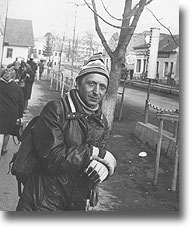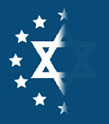

IMMIGRANTS

 More than 1100 people from the countries of the former Soviet Union joined the Jewish Community in Wuerzburg and its vicinity as socalled “Kontíngentfluechtlinge”. A special program of the German government supports their immigration - the aim of which is to add fresh energies to German Jewish life which had almost completely been annihilated during the Nazi terror. The administrative basis for the acceptance of the immigrants is the ”Gesetz ueber Massnahmen fuer im Rahmen humanitaerer Hilfsaktionen aufgenommene Fluechtlinge” (”Kontingentfluechtlingsgesetz”) of 1980, last amended in 1997.
More than 1100 people from the countries of the former Soviet Union joined the Jewish Community in Wuerzburg and its vicinity as socalled “Kontíngentfluechtlinge”. A special program of the German government supports their immigration - the aim of which is to add fresh energies to German Jewish life which had almost completely been annihilated during the Nazi terror. The administrative basis for the acceptance of the immigrants is the ”Gesetz ueber Massnahmen fuer im Rahmen humanitaerer Hilfsaktionen aufgenommene Fluechtlinge” (”Kontingentfluechtlingsgesetz”) of 1980, last amended in 1997.90% of the immigrants who settled in Unterfranken come from the European part of the former Soviet Union, mostly from larger citiers like Moscow, Kiev, St. Petersburg, Odessa, and from smaller cities in Russia, Belarus and the Ukraine. The influx of Jewish settlers is motivated by national conflicts, environmental crisis (f.i. Tschernobyl), lack of perspective and security, job limitations, polictical and economic instability and - in very many cases - continuing public antisemitism. 60 % of the adult immigrants have an academic education. About 2% have not completed a formal education.
Die frühere Heimat von Marat Guerchikov war St. Petersburg



Advice and assistance are at the heart of the social services in the community. Knowledge, creativiy and flexiblity are necessary when help is offered to people who need to accept a different culture and a new lifestyle. Language difficulties, legal questions and identity problems are also addressed. Advice should not be mixed up with tutelage. Priority is given to promoting and strengthening the potential for self-help of the migrants.
In this the Community relies both on its members and external volunteers as well as on the cooperation with the relevant local authorities in Unterfranken. Social officers in the cities and rural communities offer professional and competent assistance, for instance when it comes to find a job or in crisis counseling. Members of private organisations, such as the counseling service of AWO/Arbeiterwohlfahrt (Labourers’ Welfare Organisation) also support the community in its efforts to integrate newcomers.
Enquiries (in writing or in person) can also be made in Russian.
Tel 0931-40 42 422. Fax 0931-46 55 24 9. E-Mail: frank_erika-beratung@web.de. Office hours at Shalom Europa: Monday, Wednesday, Thursday 8:30-13:00, Interpreters available between 9:00 and 12:00. On Fridays office hours 10:30-11:30 (interpreter on demand).
































